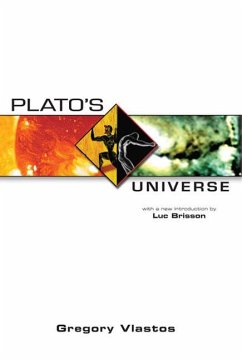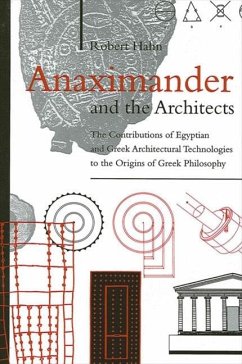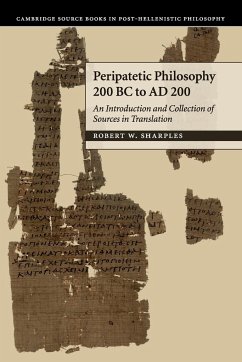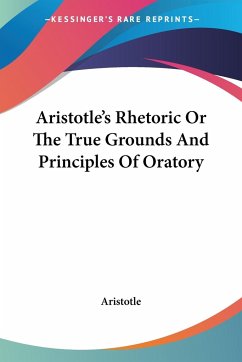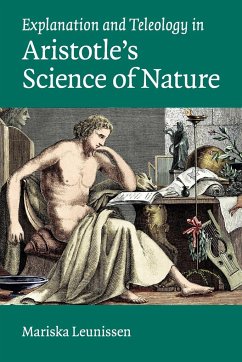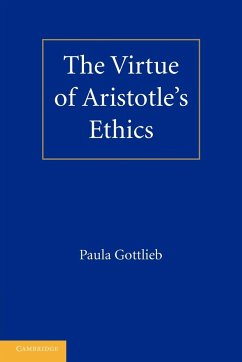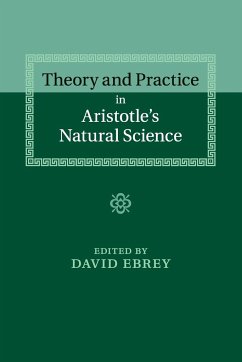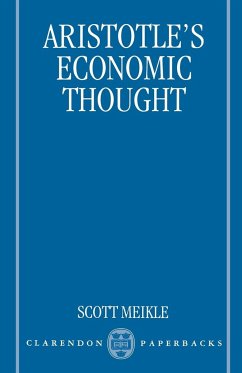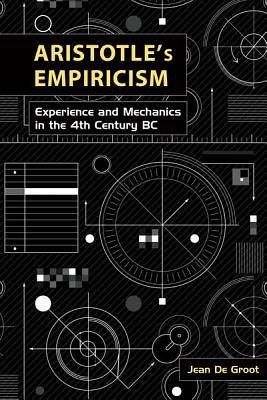
Aristotle's Empiricism: Experience and Mechanics in the 4th Century BC
Versandkostenfrei!
Nicht lieferbar
Although Aristotle's philosophy is generally considered "empiricist" (in the sense that he believes the ultimate source of knowledge is perception), a number of contemporary scholars have denied that he held perception to be the ultimate source of knowledge or have claimed that his empiricism is at best naïve. In this highly original and important work, Jean De Groot defends Aristotle the empiricist, and she does so by examining the nature of his empiricism, and its connection to mathematics, through a detailed study and evaluation of his work on mechanics and its role in his natural philosop...
Although Aristotle's philosophy is generally considered "empiricist" (in the sense that he believes the ultimate source of knowledge is perception), a number of contemporary scholars have denied that he held perception to be the ultimate source of knowledge or have claimed that his empiricism is at best naïve. In this highly original and important work, Jean De Groot defends Aristotle the empiricist, and she does so by examining the nature of his empiricism, and its connection to mathematics, through a detailed study and evaluation of his work on mechanics and its role in his natural philosophy (in the context of fourth century philosophy and science). Aristotle's Empiricism includes a fresh reading of many texts, from the Physics, De Caelo, De Motu Animalium, Metaphysics, Generation of Animals, Categories, and Posterior Analytics, and its author is to be applauded for enriching our understanding of Aristotle's thought through the careful use and analysis of two likely inauthentic works in the corpus Aristotelicum: the Mechanics, and Problemata XVI. New light is shed on such important Aristotelian concepts as dunamis, eidos, phainomena, empeiria, and automata, and on issues that have not received much attention (for example, Aristotle's conception of weight). This book should be of great interest to anyone working on Aristotle's natural philosophy. --Robert Mayhew Professor of Philosophy Seton Hall University Jean De Groot explores the appropriation and use of mechanical principles in Aristotle's natural philosophy. Her exploration offers a new approach to Aristotle's thought and a fresh perspective on the method Aristotle adopts in the study of nature. The book is a most welcome addition to the existing body of literature on Aristotle's natural philosophy. --Andrea Falcon Associate Professor Concordia University This highly original and widely informed book presents "the [yet] uncaptured Aristotle" at the core of whose thought lies an empirical approach to the world's phenomena, with mechanical processes as paradigmatic. In its instructive coordination of the historical context with current debates, this erudite and innovative work introduces an Aristotle who is deeply influenced by mechanical analogies and walks the road of an empiricism orthogonal to the neo-Platonic teleology of later Aristotelians. We have here a major contribution to our understanding of the great Stagyrite. --Dr. Nicholas Rescher Distinguished University Professor of Philosophy University of Pittsburgh In this highly original book - at the same time deep and wide-ranging, erudite and exciting, - Jean De Groot overturns widespread conceptions of Aristotle's natural philosophy as the polar opposite of early modern science, Aristotelianism being qualitative and dialectical, whereas early modern science was mathematical and experimental. Drawing upon a much wider range of Aristotelian and Platonic texts than is usual in studies of Aristotle's physics, De Groot makes the case that at the foundation of Aristotle's theories of motion was mechanics or what she calls the "moving radius principle." Made conscious by the kinesthetic awareness that the mechanical advantage of a lever derives from the rotation of a rigid body, the moving radius principle states that in such a rotation points farther from the point or axis at rest move greater distances in fixed proportion. Thus for Aristotle as well as for others before him, De Groot argues, "at the least, some objects and properties of a mathematical sort just are part of nature and sometimes are principles of nature." This means, she suggests, that to understand Aristotle it should be realized that in his time the boundaries between what is mathematical and what is physical were still in flux: some branches of m





